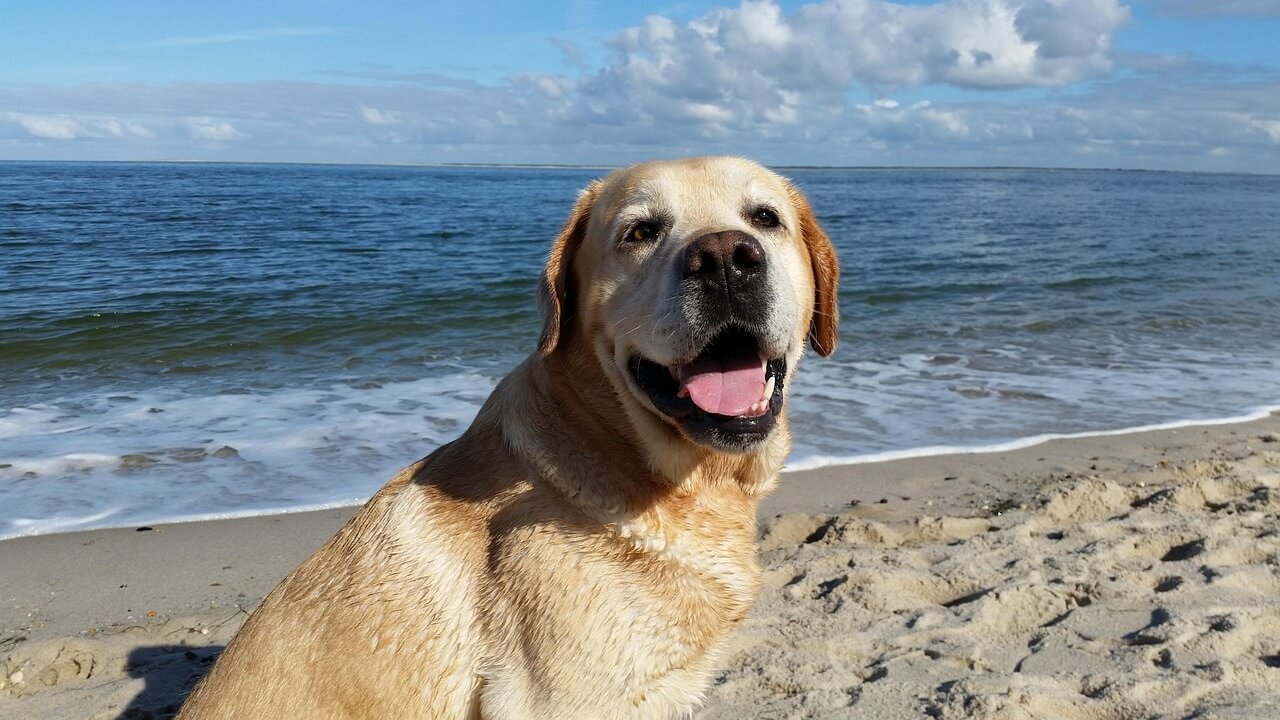Can Dogs Eat Walnut Shells? What You Need to Know
Walnuts are a popular snack for humans, but when it comes to our furry friends, not everything that’s safe for us is safe for them. While walnuts themselves can sometimes be shared in moderation, walnut shells pose a completely different set of risks. These hard, sharp fragments can cause serious harm if ingested by your dog. As a responsible pet owner, it’s important to understand the dangers associated with walnut shells and how to keep your pup safe. In this guide, we’ll explore what makes walnut shells hazardous, signs of ingestion, and steps you can take to prevent accidents. Let’s dive into the details to ensure your dog stays happy and healthy!
Why Walnut Shells Are Dangerous for Dogs
Walnut shells are not only tough and indigestible but also pose several health risks to dogs. Understanding these dangers can help you take preventive measures and act quickly if an accident occurs.
Choking Hazard : The hard, jagged edges of walnut shells can get stuck in your dog’s throat, leading to choking or difficulty breathing.
Gastrointestinal Blockage : If swallowed, the shells can cause obstructions in the digestive tract, requiring emergency surgery in severe cases.
Sharp Fragments : The rough texture of walnut shells can damage your dog’s mouth, throat, or intestines as they pass through the body.
Toxicity Risk : Moldy walnuts or shells may contain mycotoxins, which are harmful substances that can lead to poisoning.
Difficulty Digesting : Dogs’ digestive systems aren’t equipped to break down hard materials like walnut shells, increasing the risk of complications.
Given these potential dangers, it’s best to keep walnut shells far out of your dog’s reach. Prevention is always easier than dealing with the aftermath of ingestion.
Signs Your Dog May Have Eaten Walnut Shells
If you suspect your dog has ingested walnut shells, recognizing the symptoms early can make a significant difference in their recovery. Here are some common signs to watch for:
Vomiting or Diarrhea : These are often the first indicators of gastrointestinal distress caused by foreign objects.
Lethargy or Weakness : A lack of energy may suggest internal discomfort or poisoning.
Loss of Appetite : Refusal to eat can signal pain or blockages in the digestive tract.
Excessive Drooling : This could indicate irritation in the mouth or throat from sharp shell fragments.
Abdominal Pain : Whining, pacing, or reluctance to lie down may point to intestinal blockages or injuries.
If you notice any of these symptoms, contact your veterinarian immediately. Early intervention can prevent further complications and ensure your dog receives proper care.
Check this guide 👉Can Dogs Eat Vanilla Cake? Best 7 Health Tips!
Check this guide 👉Can Dogs Eat Black Pepper? Best 7 Health Tips!
Check this guide 👉Can Dogs Eat Hot Dogs? Best 7 Tips!

Safe Alternatives to Walnuts for Dogs | Foods to Avoid Giving Your Dog |
|---|---|
Plain, unsalted peanut butter (in moderation) | Chocolate-covered nuts |
Apples (without seeds) | Macadamia nuts |
Carrot sticks | Moldy or spoiled nuts |
Blueberries | Walnuts with shells |
Cooked chicken (boneless) | Nuts seasoned with salt or spices |
Steps to Take if Your Dog Eats Walnut Shells
Discovering that your dog has eaten walnut shells can be alarming, but staying calm and taking immediate action is crucial. Follow these steps to address the situation effectively:
Assess the Situation : Determine how many shells were consumed and whether your dog is showing any symptoms.
Do Not Induce Vomiting : Attempting to make your dog vomit at home can worsen the problem, especially if sharp fragments are involved.
Call Your Veterinarian : Seek professional advice immediately, even if your dog seems fine. They may recommend bringing them in for an exam.
Monitor Closely : Keep an eye on your dog for signs of distress, such as vomiting, lethargy, or abdominal pain.
Prevent Future Incidents : Store walnuts and other potentially harmful foods securely to avoid repeat occurrences.
Acting swiftly and responsibly can help minimize risks and protect your dog’s health in the long run.
How to Prevent Accidental Ingestion of Walnut Shells
Prevention is key to keeping your dog safe from hazards like walnut shells. By implementing simple precautions, you can reduce the likelihood of accidents.
Store Nuts Safely : Keep walnuts and other nuts in sealed containers or high shelves where your dog can’t access them.
Dispose of Waste Properly : Throw away shells and nut remnants in a secure trash can that your dog cannot open.
Supervise Snack Time : Always monitor your dog during meals or when they’re around food to prevent sneaky snacking.
Teach Commands : Train your dog to respond to commands like “leave it” or “drop it” to stop them from picking up harmful items.
Pet-Proof Your Home : Regularly inspect your living space for small objects or food debris that could pose a risk to curious pups.
These proactive measures will help create a safer environment for your dog and give you peace of mind.
Protect Your Dog by Knowing What to Avoid
Many everyday household items can pose serious risks to your dog’s health if ingested. Being aware of these dangers allows you to take preventive measures and act quickly in case of accidental consumption.
Cooked Bones : While dogs love bones, cooked ones can splinter and cause internal injuries.
Plastic Bags or Wrappers : These can lead to choking or intestinal blockages if swallowed.
Cleaning Products : Harsh chemicals in household cleaners can irritate or poison your dog if licked or ingested.
Small Toys or Objects : Tiny items like buttons or toy parts are easy to swallow and can cause obstructions.
Medications : Human medications, even in small doses, can be toxic to dogs.
By keeping these items out of reach, you can prevent emergencies and ensure your home remains a safe environment for your pet.
Reward Your Dog Without the Risks
If you’re looking for healthy and safe treats to spoil your dog, there are plenty of options that won’t harm their digestive system. Here are some vet-approved alternatives:
Plain Cooked Chicken : A lean protein source that most dogs love and can digest easily.
Pumpkin (Unseasoned) : Helps with digestion and is a great low-calorie snack.
Green Beans : Low in calories and high in fiber, making them a healthy choice.
Bananas (in Moderation) : A sweet treat packed with potassium, but should be given sparingly due to sugar content.
Cheese (if Lactose-Tolerant) : A small piece of cheese can be a tasty reward for dogs who aren’t lactose intolerant.
These alternatives provide variety and nutrition while keeping your dog happy and healthy.
Teaching Your Dog to Stay Away from Danger
Training your dog to avoid harmful foods is an essential part of ensuring their safety. With patience and consistency, you can teach them to resist temptation and stay out of trouble.
Use Positive Reinforcement : Reward your dog with praise or treats when they follow commands like “leave it” or “drop it.”
Practice Self-Control Games : Teach your dog to wait before eating their food or treats, reinforcing impulse control.
Simulate Real-Life Scenarios : Place harmless objects on the floor and practice redirecting your dog’s attention away from them.
Be Consistent : Reinforce training regularly to ensure your dog retains the lessons over time.
Supervise During Walks : Keep your dog on a leash and monitor their behavior to prevent scavenging.
Training not only protects your dog but also strengthens the bond between you and your furry companion.
Frequently Asked Questions About Dogs and Walnut Shells
Are walnut shells toxic to dogs?
While the shells themselves aren’t inherently toxic, they can cause physical harm, such as blockages or injuries, and moldy shells may contain harmful toxins.
Can dogs digest walnut shells?
No, dogs cannot digest walnut shells. Their digestive systems are not designed to break down hard, indigestible materials.
What should I do if my dog eats a walnut shell?
Contact your veterinarian immediately for guidance, even if your dog isn’t showing symptoms.
Are all types of nuts dangerous for dogs?
Not all nuts are dangerous, but some, like macadamia nuts, are highly toxic. Always research before feeding your dog any new food.
Can walnut shells cause choking in dogs?
Yes, the hard, jagged edges of walnut shells can pose a choking hazard, especially for smaller breeds.
Keep Your Dog Safe from Walnut Shell Hazards
While walnuts might seem like a harmless treat, their shells can pose significant risks to your dog’s health. From choking hazards to gastrointestinal blockages, the dangers are real and should not be overlooked. By understanding the risks, recognizing signs of ingestion, and taking preventive measures, you can ensure your furry friend stays safe and healthy. Remember, when in doubt, always consult your veterinarian—they’re your best resource for keeping your dog out of harm’s way. With a little vigilance and care, you can continue to enjoy worry-free moments with your beloved companion.
Do Cats Have Taste Buds? Best 7 Expert Tips! – Discover how cats experience flavors and why their taste is so unique.
Do Dogs Have Taste Buds? Best 7 Expert Tips! – Discover how dogs experience taste, their preferences, and what it means for their diet and health.
Can Cats Taste Sweet? Best 7 Expert Tips! – Discover why cats can’t taste sweetness, how it affects their diet, and tips to keep them healthy and happy.
Can Dogs Taste Sweet? Best 7 Expert Tips! – Discover how dogs perceive sweetness, which foods are safe, and tips to manage their sweet cravings responsibly.





